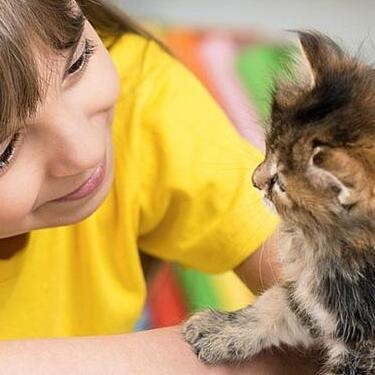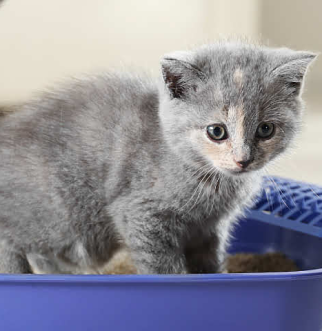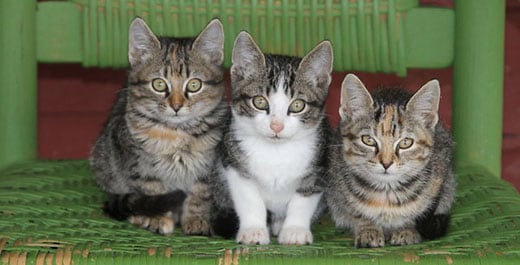
-
Find the right food for your pet
Take this quiz to see which food may be the best for your furry friend.
Find the right food for your pet
Take this quiz to see which food may be the best for your furry friend.
Featured products
 Adult Healthy Cuisine Roasted Chicken, Carrots & Spinach Stew Dog Food
Adult Healthy Cuisine Roasted Chicken, Carrots & Spinach Stew Dog FoodDelicious roasted chicken paired with tender vegetables in a succulent stew
Shop Now Small & Mini Savory Stew with Chicken & Vegetables Dog Food
Small & Mini Savory Stew with Chicken & Vegetables Dog FoodA delicious complement to the nutrition of Science Diet Small & Mini 7+ dog food
Shop Now Adult 7+ Perfect Digestion Chicken, Whole Oats & Brown Rice Recipe Dog Food
Adult 7+ Perfect Digestion Chicken, Whole Oats & Brown Rice Recipe Dog FoodScience Diet's breakthrough nutrition supports ultimate digestive well-being & healthy microbiome for dogs age 7+
Shop NowFeatured products
 Adult 7+ Senior Vitality Chicken & Vegetable Stew Cat Food
Adult 7+ Senior Vitality Chicken & Vegetable Stew Cat FoodImproves Everyday Ability to Get Up & Go
Shop Now Adult 7+ Tender Tuna Dinner Cat Food
Adult 7+ Tender Tuna Dinner Cat FoodWith delicious chunks in a decadent gravy
Shop Now Adult Savory Entrée Can Variety Pack Cat Food
Adult Savory Entrée Can Variety Pack Cat FoodPrecisely balanced nutrition with the delicious taste of savory minced chicken to help fuel the energy needs of cats during the prime of their life
Shop Now -
Dog
- Dog Tips & Articles
-
Health Category
- Weight
- Food & Environmental Sensitivities
- Urinary
- Digestive
- Joint
- Kidney
-
Life Stage
- Puppy Nutrition
- Adult Nutrition
- Senior Nutrition
Cat
- Cat Tips & Articles
-
Health Category
- Weight
- Skin & Food Sensitivities
- Urinary
- Digestive
- Kidney
-
Life Stage
- Kitten Nutrition
- Adult Nutrition
Featured articles
 Why Are Dogs and Cats So Cute?
Why Are Dogs and Cats So Cute?If waggy puppy dog tails and furry kitten yawns make you swoon, you're not alone. Why are cats so cute? And, dogs too! Let's find out!
Read More Does My Pet Hate Me?
Does My Pet Hate Me?Learn tips for bonding with your pet if you've ever thought, 'My dog doesn't like me, or 'Why do I have a standoffish cat?'
Read More Do Dogs and Cats have Belly Buttons?
Do Dogs and Cats have Belly Buttons?Learn whether cats & dogs have belly buttons like humans, what the function is, and if there are any health concerns associated with it.
Read More -

Now that you're a parent of a super-cute kitten, it's time to focus on the practical aspects of cat parenthood. You're probably asking yourself questions like, "What litter is safe for my kitten?" or "What can I wash my kitten with?" Even longtime cat parents can use a refresher on these kitten care topics.
From carriers to collars, here are seven things pet parents need to know about what products are safe for kittens:
1. What Litter Is Safe for Kittens?
There are many options for litter material, including clay, pine, paper and even walnut shells. Then there's clumping or non-clumping — which is the safer option for kittens? As Petful explains, there is a very real risk of your kitten inhaling or ingesting clumping litter, either by eating it directly out of the box or getting it stuck in their paws. Once in the intestines, this litter can further clump and cause internal damage. Your best bet is to avoid clumping litter until your kitten can safely distinguish it from food.
2. Which Foods Are Safe?
Kittens younger than 5 weeks that are not able to nurse from their mother should be fed formula or "gruel" (kitten food mixed with formula). After that, you can feed your furry friend kitten-specific solid food, either dry, kibble or wet food. We recommend consulting your veterinarian before feeding any food regardless of age as they will know your kitten's needs best.
3. Which Kitten Shampoos Are Safe?
Cats are pros at keeping themselves groomed, but if you need to bathe your feline friend, using the right tools is key. Opt for a gentle cat-friendly cleanser that's free from harsh chemicals. "Never use dog shampoo," advises the South Boston Animal Hospital, "especially one that contains flea repellents, as those products can be toxic to your cat." Avoid human shampoo and dish detergent — even the most gentle ones can strip your kitty's skin and hair of necessary oils.
4. Which Kitten Collars and Tags Are Safe?
Even if your kitten has a microchip and/or is strictly an indoor cat, provide them with a safe collar and pet tag just to be safe. A pull-away safety collar is best for kittens; unlike the stretchy kind, they won't get their paws or face stuck in a safety collar. Cats of any age may chew on a dangling pet tag and get it stuck in their mouth. Opt for a belt-buckle style tag that sits flat against the collar: your kitty can't chomp on it and it's less likely to fall off.


Tasty Tips
5. Which Cat Carriers Are Safe?
Your kitty may not be in a carrier more than a couple of times a year, but they still need one that protects them during journeys. Choose a hard plastic carrier, recommends the Animal Hospital of North Asheville, because they're durable and easy to clean. Additionally, the top pops off easily in case your kitten won't exit through the front door. They also emphasize that the carrier shouldn't be too big: "Cats should be able to stand, sit and turn around in their carrier. Generally, a carrier should be one-and-a-half times the size of your cat." Not so big that your furry friend tumbles around in it.
6. Which Kitten Toys Are Safe?
Anything can be a kitten toy, from a rubber band to the curtains. Kittens are mischievous, so keep them away from those plastic bags and avoid toys that are small enough to be swallowed, especially those with tiny decorations. Cut off any potential hazards from the toys or swap them out for unadorned catnip pillows, large balls or even wadded up paper. Make sure to remove any string, as this can be a significant hazard to your kitten.
7. Which Flea and Tick Treatments Are Safe?
Never use treatments meant for dogs or other animals, including humans, on your cat. Pesticides in dog flea collars are typically toxic to cats. The Cornell University College of Veterinary Medicine advises never to purchase flea or tick treatments without the specific recommendation of your vet.
In general, if you have any questions or concerns about what products are safest for kittens it's always best to consult your vet before using any new products on your kitten. A little research goes a long way in keeping your new fur baby safe, happy and healthy.


Christine O'Brien is a writer, mom, and long-time cat parent whose two Russian Blues rule the house. Her work also appears in Care.com, What to Expect, and Fit Pregnancy, where she writes about pets, pregnancy, and family life. Find and follow her on Instagram and Twitter @brovelliobrien.
Related products
Related articles

Discover how to train your cat, starting with very basic first steps that both reward good behavior and discourage the bad.

Cats are naturally very clean and chances are your kitten will already have learned how to use the litter box from her mother before she comes to live with you.

How do you get a cat to lose weight? Learn all about cat foods for weight loss, including how to choose weight control cat food and exercise tips.

What is the best food for an overweight cat? Learn all about weight control food for cats, including what's in it and how it works.

Put your cat on a diet without them knowing
Our low calorie formula helps you control your cat's weight. It's packed with high-quality protein for building lean muscles, and made with purposeful ingredients for a flavorful, nutritious meal. Clinically proven antioxidants, Vitamin C+E, help promote a healthy immune system.
Put your cat on a diet without them knowing
Our low calorie formula helps you control your cat's weight. It's packed with high-quality protein for building lean muscles, and made with purposeful ingredients for a flavorful, nutritious meal. Clinically proven antioxidants, Vitamin C+E, help promote a healthy immune system.


